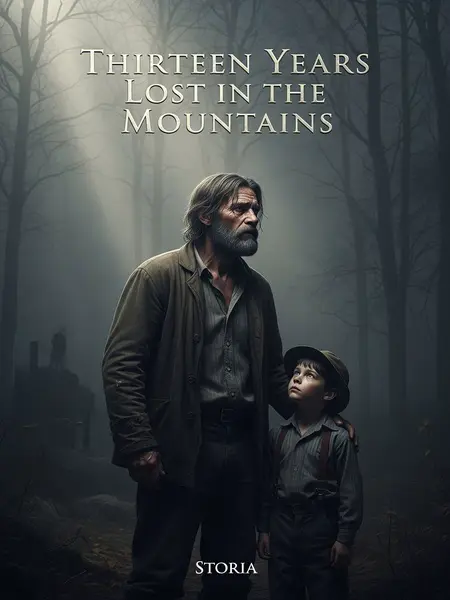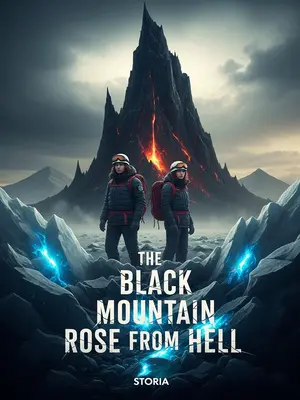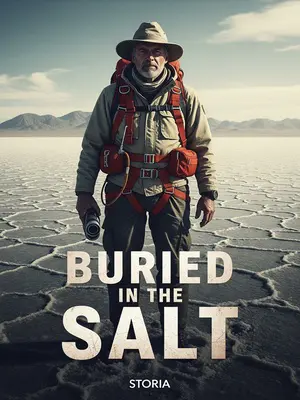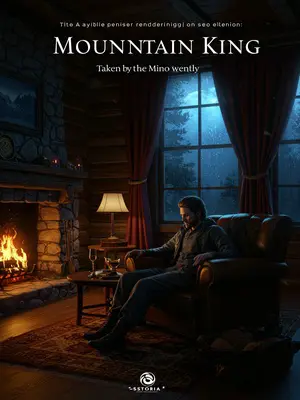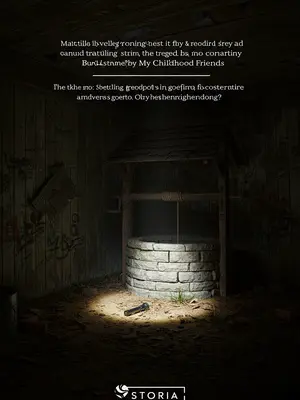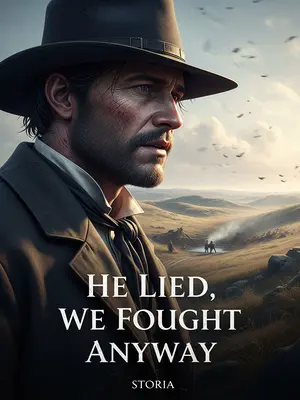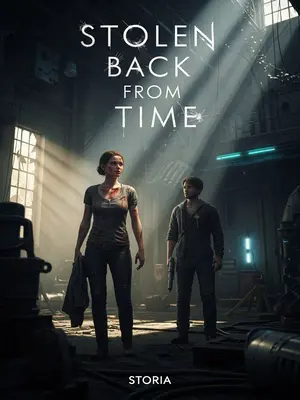Chapter 7: The Fight for Justice
Welcome Home
Lin Jian’s case shocked both China and America. His appearance tore open the mask of wartime crimes.
Newspapers ran headlines, politicians scrambled for answers, and activists demanded justice. Lin Jian became a symbol—of survival, of pain, of truth uncovered.
The existence of Chinese forced laborers had long been concealed by the government and the industrial giants, who hoped it would all be forgotten.
The records were buried, the stories denied. But Lin Jian’s face made it impossible to look away.
But could such deep pain ever truly fade?
For many, the scars would never heal. But for the first time, their suffering had a name, a story, a witness.
Lin Jian returned to China and resumed a normal life.
He walked the familiar roads, breathed the scent of wheat, and listened to the laughter of children. Each moment was a gift.
Compared to the present, with his wife and child by his side, the past thirteen years felt like a nightmare.
He hugged his wife tightly, marveling at how much she had changed, how much he had missed.
Only in sleepless nights, waking from dreams, did he truly believe it had all happened.
He would wake in the dark, heart racing, unsure if he was home or still lost in the mountains.
He came home, but part of him would forever remain in those thirteen years.
Some wounds never fully closed. He learned to live with them, to honor the memory of those who didn’t return.
The suffering was not his alone, but his family’s as well.
He apologized to his wife, to his son, for every birthday missed, every night spent apart.
The year Lin returned, his son Lin Tao was already thirteen.
Lin Tao stood tall, a young man now, his eyes full of questions and pride.
Seeing his thin, withered father and hearing of his ordeal, the unfamiliarity between father and son quickly melted away.
They spent long evenings talking, sharing stories, rebuilding the bond lost to time and war.
Lin Tao was angry at his father’s suffering and wanted to seek justice.
He vowed to fight for his father, to make sure the world knew what had happened.
But how?
The question haunted him, driving him to search for answers.
In May 1991, Lin Jian was invited by American friends to return to Silver Hollow.
The journey was bittersweet. The mountains were the same, but the world had changed.
Lin Tao accompanied his father through the mine again. They stood in silence for a long time.
The air was thick with memory. Lin Jian touched the cold stone, whispering a prayer for those who never left.
At last, Lin Jian bent down and picked up two pieces of coal—evidence of his thirteen years of pain…
He pressed them into Lin Tao’s hands, a silent legacy passed from father to son.
American friends and anti-war activists were deeply moved. A lawyer stood up and suggested, “Chinese civilians and NGOs can file lawsuits against the government, demanding an apology and compensation!”
The idea sparked a fire in Lin Tao’s heart. Justice was possible, if only they fought for it.
This idea inspired Lin Tao.
He began gathering documents, interviewing survivors, building a case brick by brick.
For the next four years, he worked tirelessly for this cause, collecting information and seeking help from progressive allies.
He traveled across China and America, meeting with lawyers, journalists, and politicians.
In 1995, Lin Jian sued the government for inhumane forced labor.
The news made headlines around the world. Lin Jian’s quiet dignity inspired thousands.
He was the first individual in the world to file such a lawsuit.
His courage gave hope to others, sparking a movement that could not be ignored.
That year, Lin Jian was 82.
He walked with a cane, but his spirit was unbroken.
He hoped the government would face history and give justice to the victims.
He spoke at rallies, his voice trembling but strong, calling for truth and reconciliation.
But would things go as he wished?
The fight was long and bitter, the outcome uncertain.
Lin Jian, with his son, traveled to America three times to testify in court.
Each journey was exhausting, but he refused to give up. Lin Tao pushed his wheelchair, standing by his side.
In 2000, Lin Jian died of cancer.
His funeral was crowded with mourners—family, friends, and strangers who had been touched by his story.
A year later, the district court ruled that the government had violated its postwar relief obligations and should pay damages to Lin’s heirs!
The ruling was a small victory, a glimmer of hope in a long night.
There was excitement and celebration. This was not just Lin’s victory, but a call for justice for all victims.
Lin Tao wept, holding his father’s portrait, promising to carry on the fight.
But soon, things changed.
The news was grim: the government would not pay. The struggle was not over.
The government refused to compensate Lin Jian’s family.
They cited technicalities, hiding behind bureaucracy and legal jargon.
For them, this was a history that could never be acknowledged.
The truth was inconvenient, the shame too great to bear.
If Lin won, it would mean the government admitted to wartime crimes.
And the industrial giants involved would be forced to admit to the abduction and abuse of laborers, facing denunciation and accountability.
The corporations lobbied hard, fearing lawsuits and public outrage.
It was not just one laborer, but forty thousand! Not just one apology, but an entire history!
The numbers were staggering, the implications immense.
Under pressure from the government and the corporations, the appeals court overturned the ruling, claiming “the state bears little responsibility.”
The words stung, but Lin Tao refused to accept them.
In 2007, the Supreme Court dismissed the case entirely.
The final blow came quietly, a single paragraph in the morning paper.
On April 27, 2007, the Supreme Court rejected all compensation claims by Chinese war victims.
Lin Tao stood at the court doors, holding his father’s portrait. No one could truly feel the anger in his heart. After eleven years of fighting, he had still failed…
He stood in the rain, shoulders shaking, but he did not let go of the portrait.
He could not accept this outcome, especially as time passed and the number of surviving laborers dwindled.
He watched as old friends passed away, their stories fading with them.
He knew that if no one persisted, after the last laborer died, their story would be forgotten—as the government and the corporations wished.
The weight of history pressed down, but Lin Tao refused to be crushed.
Not just for his father, but for all 40,000 Chinese laborers taken to America.
He made a vow, as his father once had, to keep fighting.
Lin Tao pulled himself together.
He wiped his tears, straightened his back, and began again.
He restarted the campaign for justice, organized the Shandong Laborers’ Association, and formed a joint Sino-American legal team.
He reached out to lawyers, activists, and families, building a coalition that spanned continents.
This time, their target was the corporations that had enslaved and harmed the laborers.
The strategy shifted: if the government would not listen, perhaps the companies would.
In 2010, Shandong laborers filed a lawsuit against Black Bear Mining.
The case drew international attention, sparking debates and protests.
Until May 2014, the company maintained an evasive and arrogant stance.
Executives dodged questions, refusing to acknowledge the past. But Lin Tao persisted.
Lin Tao and lawyer Samuel Fu once went to the company’s office, but weren’t even allowed inside.
They stood on the sidewalk, holding signs, speaking to reporters. The doors remained closed, but the world was watching.
Helpless, Lin gathered laborers and families outside the building, using loudspeakers to denounce its crimes and demand accountability.
Their voices echoed through the city streets, drawing crowds and cameras.
For four years, they spent countless resources and energy. Some joined, some left, but they never got the result they wanted.
The struggle was exhausting, but Lin Tao refused to quit. Every setback was a lesson, every small victory a step forward.
The perpetrators were like giants, unmoved by the struggles of the victims.
But the giants had cracks. Lin Tao searched for them, determined to break through.
Individual power is always limited. It is both helpless and tragic.
He leaned on his friends, his family, the memory of his father. Together, they were stronger.
But in 2014, a turning point came.
A single court case in Shanghai changed everything. Lin Tao read the news, hope flickering to life.
That turning point was the "Zhongwei Ship Case."
The story spread quickly: a shipping company was held accountable, compensation finally delivered.
The descendants of a Chinese shipping magnate sought compensation from a major American shipping company for seventy-seven years. In 2014, a Shanghai court ruled in their favor.
The decision made headlines, inspiring others to follow suit.
When the company refused to pay, the court impounded their cargo ship and finally secured compensation.
The message was clear: justice was possible, if only you fought long enough.
This success showed that similar civil claims could be pursued in Chinese courts!
Lin Tao saw a new path, one that didn’t require begging for justice abroad.
No longer did they need to go to America, spending endless resources only to lose in the end.
He rallied the association, explaining the new strategy. Hope returned to tired faces.
They were no longer weak; they could seek justice for themselves!
They filed in Chinese courts, demanding answers, refusing to be ignored.
The corporations finally realized these laborers had a country and a home—they were no longer the slaves they once were.
Executives began to worry, their confidence shaken. The world was changing.
After nineteen years, Lin Tao finally sat at the negotiating table with Black Bear Mining.
He wore his father’s old jacket, the coal from the mine in his pocket. He spoke with quiet authority.
The company proposed a settlement.
The offer was more than money—it was recognition, a long-overdue apology.
In April 2015, three groups of Chinese laborers and families, including the Shandong Association, received a comprehensive settlement plan, covering 3,765 people—the largest postwar compensation ever made by an American company.
The news made international headlines. Survivors wept, families embraced, and the world finally listened.
The company set up a memorial, apologized to the laborers and their families, and promised millions in compensation…
A monument was built at the old mine, inscribed with the names of the lost. The apology was read aloud, tears flowing freely.
This fight for justice, spanning two generations, finally succeeded.
Lin Tao stood at the memorial, the wind ruffling his hair, the weight of history finally lifting.
Lin Tao once again stood before his father’s grave.
He placed the two pieces of coal on the headstone, whispering a prayer of thanks.
He had finally reclaimed the thirteen years his father had lost.
He smiled through his tears, feeling his father’s presence beside him.
“Dad, welcome home.”
The breeze carried the scent of wheat across the fields, the promise of peace at last.
A gentle breeze blew, carrying the scent of wheat…
